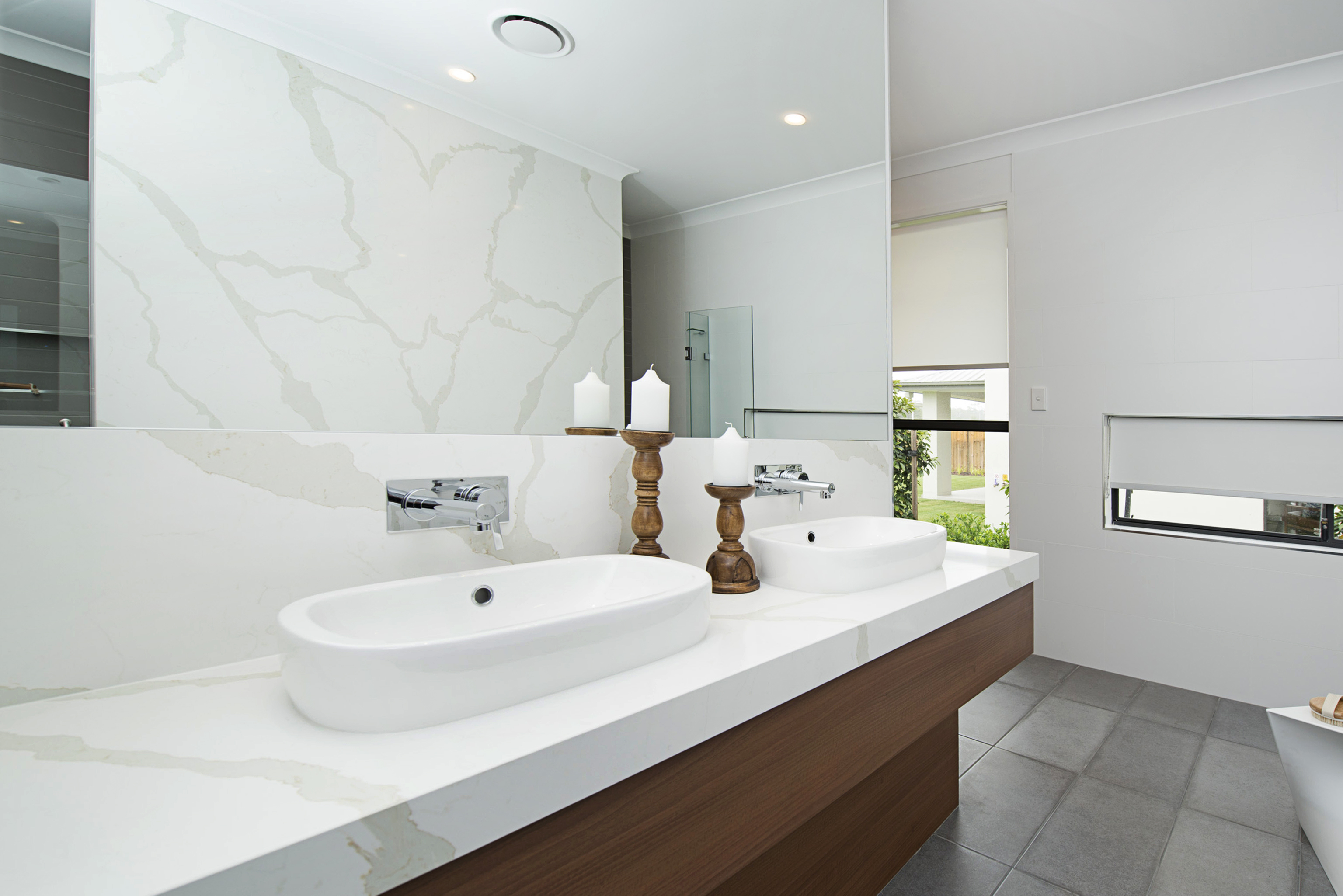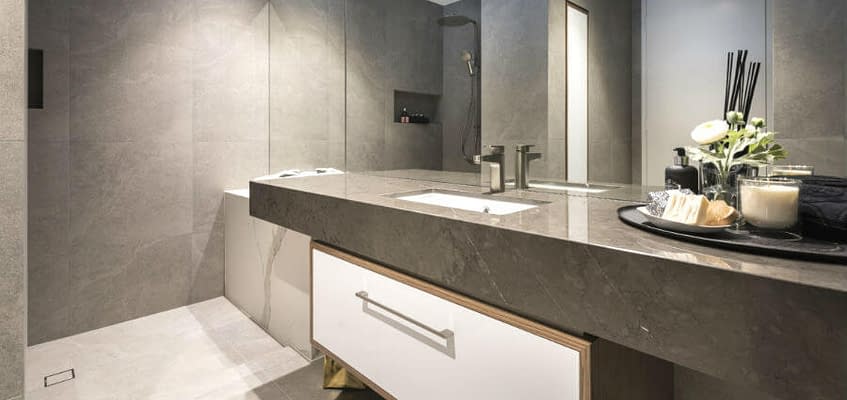Your preferred bathroom benchtop material may not likely cross your mind when planning for your bathroom’s design. Perhaps you are not aware of the available options, or you simply don’t know what the best choice is. Regardless of the situation, know that planning is beneficial for you.
The reality is that not everyone is equipped with the know-how to choose the right bathroom benchtops. And apart from that, there are vast options of benchtop materials to consider, which makes choosing a pretty overwhelming task. You will also have to think of aesthetics without disregarding function on top of that.
Cast your worries aside and read on as we have come up with a list of things to consider, including the ideal materials you should use for your bathroom benchtops.
3 Things to Consider in Choosing the Right Bathroom Benchtops
When it comes to planning for your bathroom benchtops, two of the things that will automatically cross your mind are aesthetics and function. But there’s actually more to these two.
Here are other aspects you might want to consider upon selecting and installing your bathroom benchtops.
1. Budget
A benchtop project can be hefty if you use expensive stone benchtop materials. However, whether or not you use materials with a higher price tag, it is always wise to think of your budget beforehand.
With the right budget, you can invest substantially in the value and enhancement of your bathroom. Plus, unforeseen circumstances can also happen along the way, and if you have enough budget for contingencies, you can still proceed with the project.
2. Aesthetics
Tiles are among the most flexible decorative elements you can add to your bathroom. So, you have to consider the tile design when including bathroom benchtops for your bathroom’s interior.
If you already have a bathroom interior design plan in mind, then great. The next thing you should do is take into account your bathroom benchtop material, particularly its overall aesthetics, including its colour, tone, and shade.
When it comes to design, you have an array of choices. If what you have in mind is a minimalist bathroom, you may want to choose tiles with neutral tones or go for pristine glossy whites right away. But if you are going to break the norm, add geometrics into the mix or go for rustic ceramic if you dare.
3. Function
Now that you are done with the looks, it’s time for the feel. You may want a tile that is cool to the touch and can withstand cool temperatures, especially during the winter.
In addition, you want a benchtop that is easy to maintain and simple to repair in the long run. Ideally, it should also be resistant against damage caused mainly by moisture.
3 Materials Ideal for Bathroom Benchtops
Now that you know what to consider when choosing the right bathroom benchtops, you can now search for materials that fit these three considerations.
The market offers various benchtop materials at your disposal. But before you make a final choice, we suggest that you learn more about the common benchtop materials you can use, specifically their pros and cons.
1. Quartz
If you are looking for a bathroom benchtop material containing at least 95% natural stone, you cannot go wrong with anything made of Quartz. This includes Caesarstone, Quantum Quartz, and Silestone. The rest of its contents are made of pigments and resins.
Pros:
Compared to other materials, such as granite, Quartz is on the tough side, and it does not need sealing at all. And more importantly, since this is for your bathroom benchtop, Quartz is just as perfect as it is resistant to moisture and stains.
Cons:
Quartz can be on the hefty side when it comes to price. And if you are not exactly fond of constantly wiping down your bathroom benchtop, you have to know that fingerprints and smudges are easily seen on a Quartz surface with honed and textured furnish.
2. Marble
Do you want to go for natural stone all the way? Start with Marble. Marble is perfect if you plan for a bathroom interior that exudes elegance and prestige. Its white colour and grey veining patterns are its primary features, making it pristine clean and effortlessly luxurious.
Pros:
Marble is perfect if you want bathroom benchtop materials that can last for a long time. Best of all, it is durable enough that it can withstand most dents or chips. It is also flexible to various styles. You can polish it if you want a high shine. And if you want a matte finish, you can also hone it.
Cons:
While Marble is resistant to most dents or chips, it, unfortunately, is not when it comes to scratches, etching, and stains. It is also vulnerable to acidic substances. In addition, it needs regular application of sealant to maintain its quality.
3. Granite
If making a bold statement is your game, Granite lets you play. It is a natural stone popular among many, thanks to its bold and beautiful shades that ensure a strong style statement for their benchtops.
Pros:
When it comes to options, Granite slab options do not fall short. So, whether you want subtle or patterned, there is a slab design that can suit your bathroom interior needs. And if it is properly and regularly sealed, it can resist scratches, humidity, and heat. Plus, it won’t require taxing upkeep.
Cons:
Missing out on maintenance will mean that the bathroom benchtop surface will be susceptible to various substances from liquid bathroom products. And if left unsealed, bacteria will harbour within.
Get the Right Bathroom Benchtops with Stone Interiors
The available bathroom benchtop material options online may overwhelm you. So, to save you time and effort, just head straight to our website here at Stone Interiors and browse through our various benchtop materials.
Be it quartz, porcelain, or natural stone, we at Stone Interiors are ready to accommodate your bathroom benchtop needs. Do not hesitate and contact us on 0422 448 494 to get a quote for your upcoming project.





